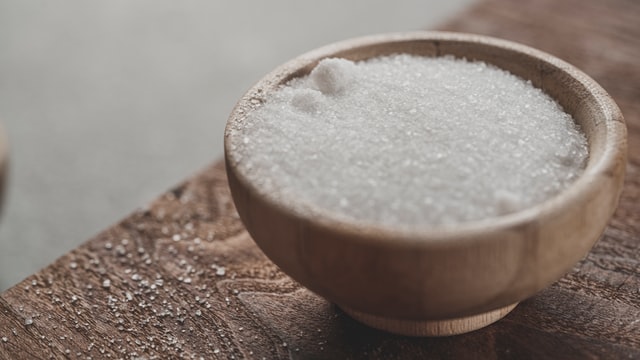When it comes to poor eating choices, sugar gets a lot of negative publicity. But too much salt may also be harmful. And it’s not just the odd bag-of-chips binge-watching night. Every day, almost all Americans consume much more salt than is suggested.
“Everyone should be conscious of how much salt they’re consuming and how it affects them,” says Julia Zumpano, RD, a registered dietitian. She discusses how salt affects your body and how you may reduce your intake without compromising taste.
Is salt bad for you?
Salt is not harmful unless consumed in excess. Here’s how it works: Salt and sodium are not synonymous. Salt is made up of two minerals: 40 per cent sodium and 60 per cent chloride. If you ingest too much sodium, it might be harmful to your health.
However, sodium is also required by your body to live. It helps your nerves and muscles operate correctly and regulates fluid in your body in little quantities.
According to Zumpano, you should consume at least 1,500 mg of salt every day. Lowering your blood pressure causes electrolyte imbalances and low blood pressure. Symptoms of sodium deficiency include:
- Dizziness.
- Headache.
- Insufficient energy.
- Muscle exhaustion.
- Nausea.
However, for most individuals, eating adequate salt isn’t an issue. It’s found in a variety of meals that most Americans consume. And no matter what kind of table salt you use at home — iodized salt, sea salt, kosher salt, or Himalayan pink salt — the quantity of sodium it contains is the same. The sole distinction is that certain types may include additional beneficial minerals, according to Zumpano.
How much salt is excessive?
The Food and Drug Administration (FDA) of the United States advises that individuals consume no more than 2,300 mg of salt per day. That is about one teaspoon of table salt. “If you eat more than that in one day, it won’t damage you,” Zumpano explains. “However, if you routinely surpass the suggested quantity, you’re consuming too much, which might have a negative influence on your health.”
The average American consumes roughly 3,400 mg of salt each day. Only top athletes or persons who sweat a lot may conceivably need this much salt.
Effects of Excessive Salt Consumption
A high-sodium diet causes you to retain fluid, which causes edema in the short term. However, the long-term effects on your health are even more worrying. Excess salt consumption may impair renal function. It also causes high blood pressure, which is the leading risk factor for stroke.
“If you just check your blood pressure once a year at your checkup,” Zumpano notes, “it may be normal that day.” “Perhaps you’ve fasted, had a cup of coffee, and peed a lot, and your blood pressure seems to be normal.” However, if you were tested after dining at a restaurant, it may not be so usual.”
Symptoms of an Excessive Sodium Intake
Because everyone is different, it’s important to understand how salt affects you. Look for the following indicators after eating a salty meal to evaluate whether you’re more susceptible to sodium’s effects.
Bloating
Water is drawn to sodium. Fluid retention will occur if you consume a lot of salty meals (when sodium holds water in your body). The end result? You are puffy and seem puffier, particularly around the belly and eyes. Swelling in your hands and feet is also possible.
Heightened thirst
According to new studies, increasing salt levels do not make individuals thirstier. Nonetheless, some individuals can’t help but drink additional liquids after consuming salty meals.
An increase in blood pressure
Sodium is predominantly found in human blood, where it attracts water. As a result, if you consume too much salt, more water enters your system. High blood pressure is caused by the increased amount of blood pushing against the blood vessel walls (hypertension).
Sleep deprivation
Too much salt may disrupt your sleep, particularly if consumed late at night. A rise in blood pressure, as well as impulses to drink and urinate, make it difficult to sleep.
How to Remove Sodium from Your System
There are a few strategies to get rid of extra sodium if you’re suffering from the symptoms of too much salt. “The finest thing to do is sweat,” Zumpano explains. “Sodium is normally removed from the body via perspiration, tears, and urine.”
Get sweating by exercising or sitting in a sauna to balance out your salt levels. Drink lots of water and follow a low-sodium diet the next day.
Excessive salt consumption is harmful to one’s health. Making a deliberate effort to reduce sodium in your diet will pay off – you’ll avoid the bloating and thirst that comes with a salty dinner, as well as the danger of developing high blood pressure in the future. That is unquestionably a win-win situation.
